Discover what’s brewing.
The best coffees are grown in mountainous regions worldwide between the Tropic of Capricorn and Tropic of Cancer. Today we import coffees from Indonesia, East Africa, and both South and Central America. Each region provides a unique offering of flavors. Learn more about Dunn Brothers Coffee sourcing practices.
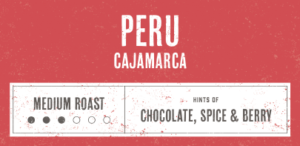
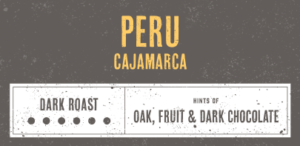
FEATURED BEANS
CENFROCAFE is a cooperative of 220 small-scale farms from the Cajamarca region of Peru. The cooperative supports 2,000 farmer members and their families. The families have access to education, health care and other social services, which many of these families do not have access to otherwise.
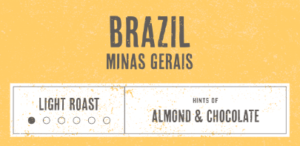
Brazil is largest producer of coffee, accounting for almost one third of all the coffee in the world. The coffee we’ve selected comes from the southern part of Minas Gerais, near Sao Paulo. This region is the oldest coffee growing region in Brazil, famous for its deep red soil and sweet, full-bodied coffees.
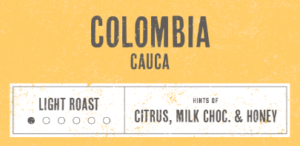
During a recent visit to Colombia, we fell in love with this region and the coffee produced here. The coffee here is grown in the Colombian Massif, a volcanic and mountainous area in the Andes where the headwaters to five major rivers are located.
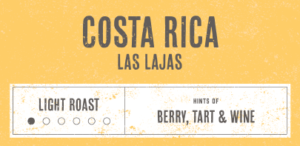
The Chacon family has been producing coffee on the Las Lajas farm for three generations, and we’ve been fortunate to visit many times over the years. A unique “honey” process is used on this coffee by leaving some of the fruity pulp on the seed while sun-drying. The leftover pulp becomes like a sticky-sweet honey, adding its own flavors to the coffee.
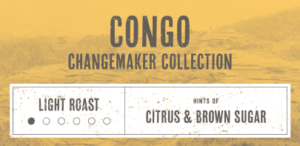
Making change is sometimes as simple as doing the doable thing – and what’s more doable than enjoying a cup of Congo coffee. A purchase from the Changemaker Collection funds breakthrough humanitarian solutions to assist Congolese refugees and 3 million others around the world. www.ARCrelief.org
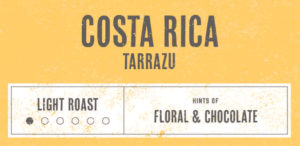
Coffee has been cultivated in Costa Rice since 1779. Tarrazu is arguably the most famous region, accounting for nearly 35% of the total coffee production in Costa Rica. This region is south of the city San Jose, in an area with the right combination of rich soil and mountainous topography for producing high quality coffee.
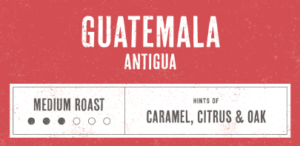
The famous Antigua region sits on and around three volcanoes – Agua, Fuego, and Acatenango. The ash from the frequently erupting Fuego volcano amends the soil to help keep moisture and encourage plant growth at these high altitude farms.
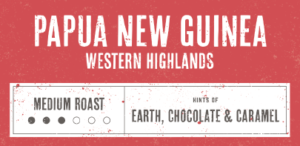
Grown a mile above sea level, the coffee from this region is produced by small sustenance farmers who also grow some coffee on their land. Known as coffee gardens locally, these gardens might have anywhere from a couple to a couple of hundred trees.

CENFROCAFE is a cooperative of 220 small-scale farms from the Cajamarca region of Peru. The cooperative supports 2,000 farmer members and their families. The families have access to education, health care and other social services, which many of these families do not have access to otherwise.

Most of the coffee on this Indonesian island, which is located directly on the Equator, is produced by smallholders. These coffee producers have tiny plots on scattered throughout terraced plateaus of clay, where the coffee grows without shade and without any chemicals.
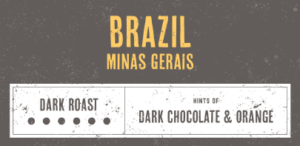
Brazil is largest producer of coffee, accounting for almost one third of all the coffee in the world. The coffee we’ve selected comes from the southern part of Minas Gerais, near Sao Paulo. This region is the oldest coffee growing region in Brazil, famous for its deep red soil and sweet, full-bodied coffees.
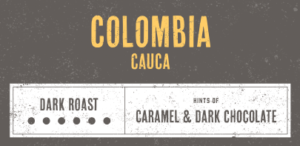
During a recent visit to Colombia, we fell in love with this region and the coffee produced here. The coffee here is grown in the Colombian Massif, a volcanic and mountainous area in the Andes where the headwaters to five major rivers are located.
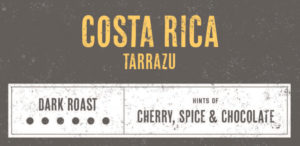
Coffee has been cultivated in Costa Rice since 1779. Tarrazu is arguably the most famous region, accounting for nearly 35% of the total coffee production in Costa Rica. This region is south of the city San Jose, in an area with the right combination of rich soil and mountainous topography for producing high quality coffee.
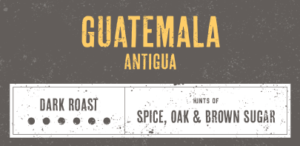
The famous Antigua region sits on and around three volcanoes – Agua, Fuego, and Acatenango. The ash from the frequently erupting Fuego volcano amends the soil to help keep moisture and encourage plant growth at these high altitude farms.
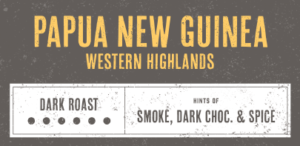
Grown a mile above sea level, the coffee from this region is produced by small sustenance farmers who also grow some coffee on their land. Known as coffee gardens locally, these gardens might have anywhere from a couple to a couple of hundred trees.

CENFROCAFE is a cooperative of 220 small-scale farms from the Cajamarca region of Peru. The cooperative supports 2,000 farmer members and their families. The families have access to education, health care and other social services, which many of these families do not have access to otherwise.
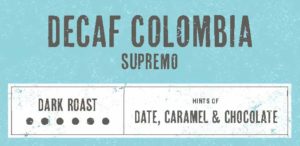
Breaking from the industry norm, this coffee is sourced green prior to decaffeination. By doing this, we are able to provide the highest quality, natural processed decaf coffee available.

